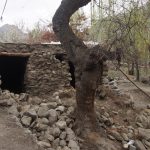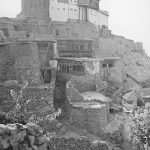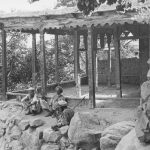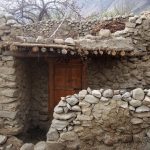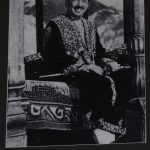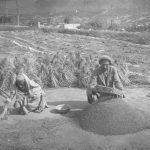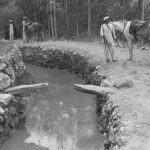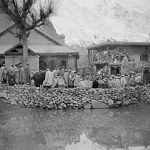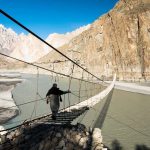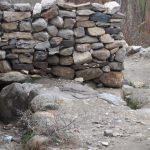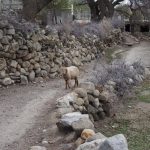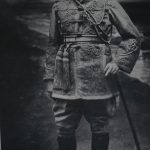The Hunza story is believed to have begun with Alexander the Great (356BC to 323BC), son of King Phillip of Macedonia. After his Father’s death Alexander ventured east to conquer new kingdoms. He captured Greece then conquered Persia leaving a burning capital in his wake.
Three of Alexander’s generals were said to have married Persian women. the generals then betrayed Alexander by giving his war plans to the Persians. Once the betrayal was found out, Alexander sought revenge, but the generals, their wives and a band of soldiers had already fled. Their refuge was a valley set high in the mountainous and remote Himalayas, this valley of refuge, is thought to be the Hunza Valley.
When the Macedon warriors and their families arrived it was possible that the Hunza was already sparsely populated. It is believed these warriors murdered all inhabitants of their new-found refuge. There are no written records of such times so all is speculative but probable. The rocky landscape could not have supported the Macedon’s unless farm land had already been built in previous centuries.
A new kingdom evolved with it’s ruling king given the title of ‘Mir’ and it remained an independent principality for 900 years.
Hunza is at an elevation of 2,500m (8,200f) and for centuries it’s passes were inaccessible to baggage animals which provided the quickest route to Swat and Gandhara for people travelling by foot. The Paths were often less than .5m (20in) wide and easily defended by local hunzukuts. These pathways are known in early Chinese history as the “hanging pathways” feared by many even the famous Xuanzang Chinese Buddhist monks.
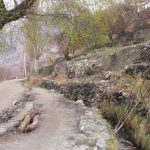
The city of Altit is said to have been founded by an Agricultural Turkic tribe of Huns from the Persian empire, 47 Ad. Believed to be first known as Hunulushal (village of the Huns). The city became the cultural hub in its early days when the Silk Road traders would use Altit as a regular stop on their way to China and beyond.
The states of Hunza, Nagar (south bank of river) Hunza (north bank of river) were once one, ruled from Gilgit by the Mayroo Khan. The Mayroo Khan married a daughter of Tra Khan of Gilgit. From this union twin boys were born, Maghlot and Girkis. From birth the two despised each other, seeing no easy way to succession, Mayroo Khan, divided the state into two, giving Girkis Hunza and Maghlot, Nagar.

The Principality of Hunza fought off 4 known failed invasion attempts of the Maharaja Kashmir, 1848, 1865, 1866, 1888, It could not hold off the invasion of the British army in December 1891. the British remained in Hunza until the mid 1950’s

